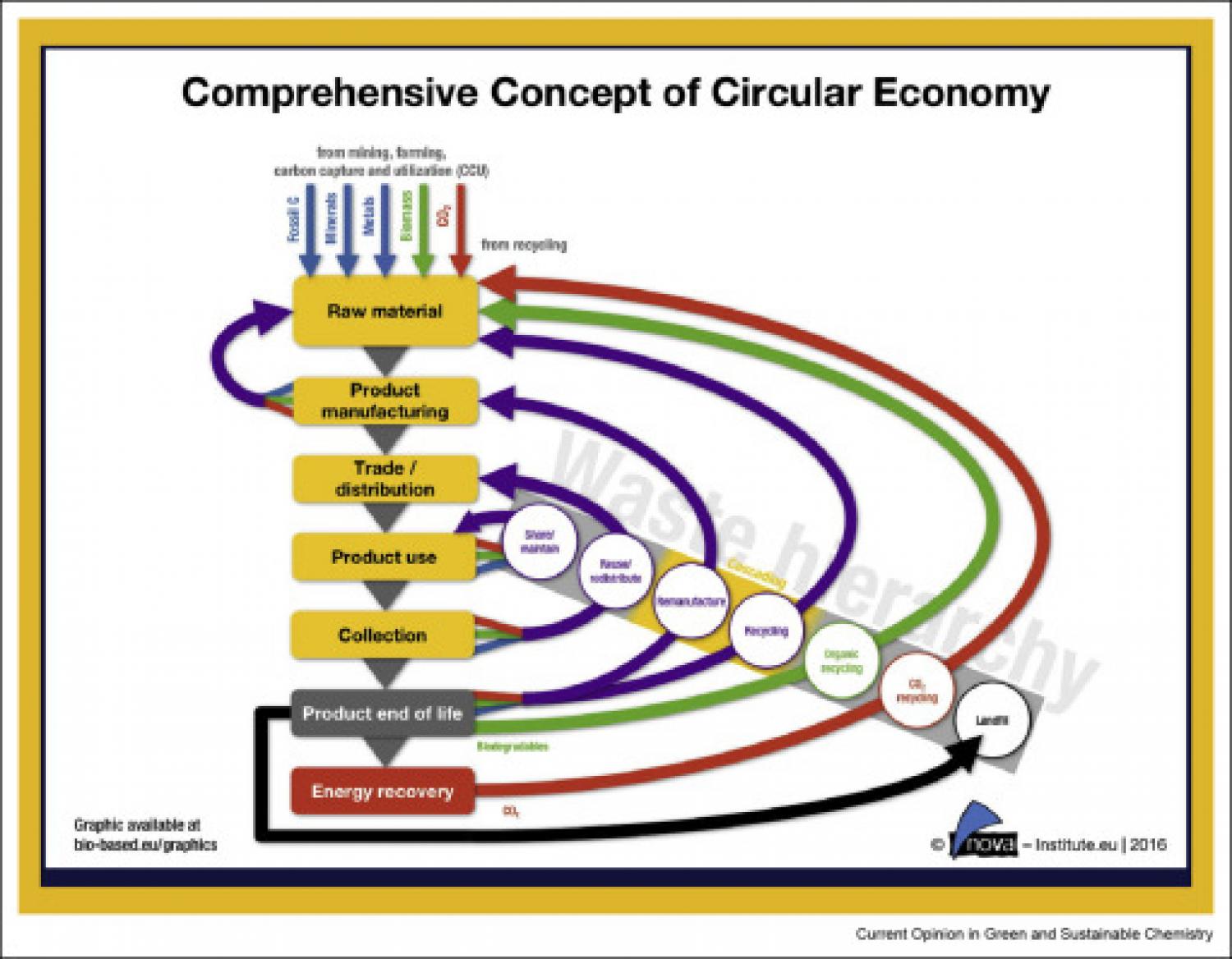
Elsevier, Current Opinion in Green and Sustainable Chemistry, Volume 8, December 2017
Waste is an extremely valuable resource that we have been accumulating over a long period. Interesting and viable organic “waste-to-resource” opportunities include plastics and food supply chain wastes. Their use as chemical feedstocks will fit well with a circular economy model. Plastics is a major waste opportunity: worldwide we only recycle a few % of the plastic we use, yet plastic manufacturing consumes some 10% of all the oil we consume, and much of it causes serious environmental damage through negligent release. The chemical content of food supply chain wastes are much more complex and varied than in plastic waste but offers a wide range of valuable chemical products. Bio-refineries can be defined as integrated complexes in which a number of renewable-derived feedstocks (bio-waste, biomass) can be converted in a range of useful products including chemicals, materials and fuels similar and sometimes identical to those obtained from petroleum.
